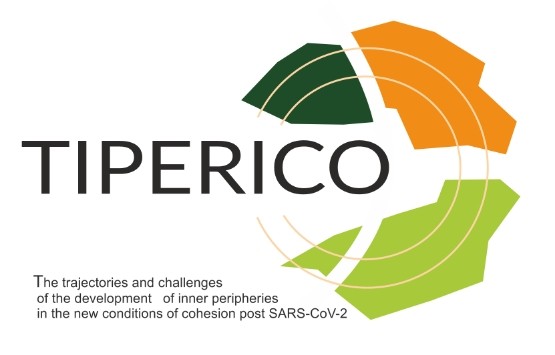The trajectories and challenges of the development of inner peripheries in the new conditions of cohesion post SARS-CoV-2
The SARS-CoV-2 pandemic which started in late 2019 and early 2020 in China and has spread all over the world, has multi-faceted economic and social consequences, inevitably leading to an economic recession. Its direct effects include rising unemployment, decreased revenues, bankruptcies and liquidations of businesses. In this context, it is particularly important to reply to the question about the social and economic consequences of the SARS-CoV-2 crisis for permanently marginalised areas (inner peripheries) representing lower level of economic development.
Inner peripheries are areas affected by a combination of undesirable processes, conditions and evolutionary dynamics resulting in limitations to their developmental potential. That peripheral nature is conditioned primarily by a limited degree of areas’ relations with the economic environment (ESPON 2017). The goal of the project is to identify the regularities of changes to the socio-economic development in selected inner peripheries in Poland with special emphasis placed on their sensitivity and resilience to the consequences of the SARS-CoV-2 crisis and the resulting recommendations for the development policy interventions.
The research project implementation includes collection of primary and secondary empirical material as well as use of quantitative and qualitative analysis methods for descriptive, explanatory and verification research.
The adopted research procedure includes:
− Delimitation and typology of inner peripheries in Poland,
− Identifying the developmental distance of inner peripheries in relation to better developed areas,
− Defining the spatial scope of the impact of cities on inner peripheries,
− Identifying the developmental factors and barriers to affecting social and economic changes in selected inner peripheries in Poland,
− Defining the intensity of the spread of developmental processes in a spatial perspective between inner peripheries and cities as sub-regional centres of functional areas,
− Indicating the course of developmental processes in selected inner peripheries in Poland with special emphasis placed on the extent of their sensitivity and resilience to the SARS-CoV-2 crisis and its social and economic consequences.
The stage of empirical research will be supplemented by two additional stages: the preceding stage of literature studies and the summarising stage of disseminating the results. In fact, the two stages will be concurrent throughout the project implementation. The preliminary stage will be continued by regular monitoring of literature on the subject and the economic and political changes related to the issues under discussion. On the other hand, the results of the empirical research will be submitted to academic discussion, as the project proceeds.
The assumptions and aims of the project make it highly relevant from the perspective of the current socio-economic challenges. The assumed effects of the project include the preparation of recommendations for cohesion policy interventions targeted at inner peripheries.
ESPON, 2017, “Inner Peripheries: National Territories Facing Challenges of Access to Basic Services of General Interest | ESPON.” https://www.espon.eu/inner-peripheries.



